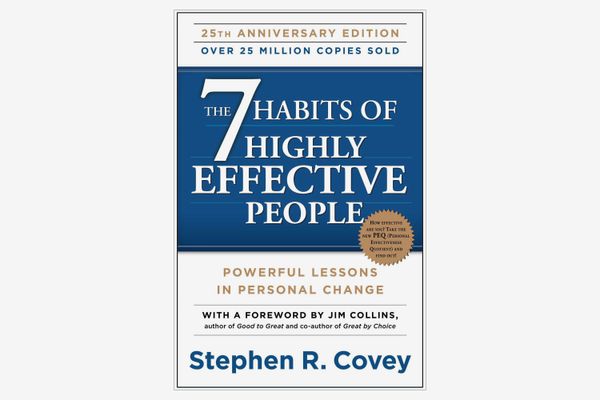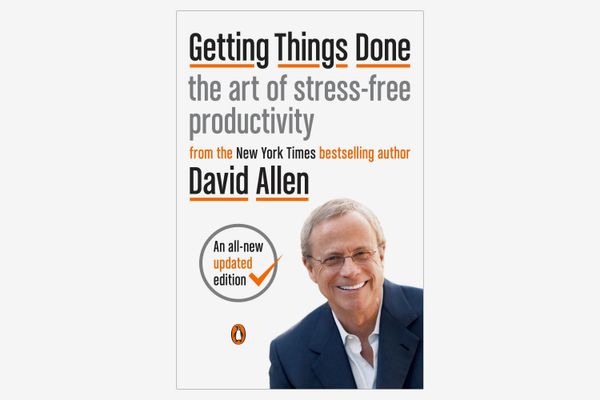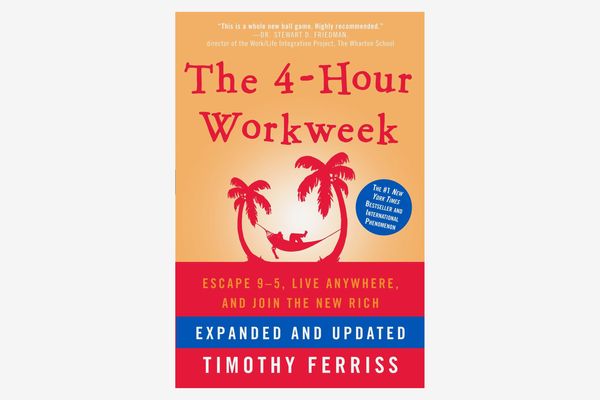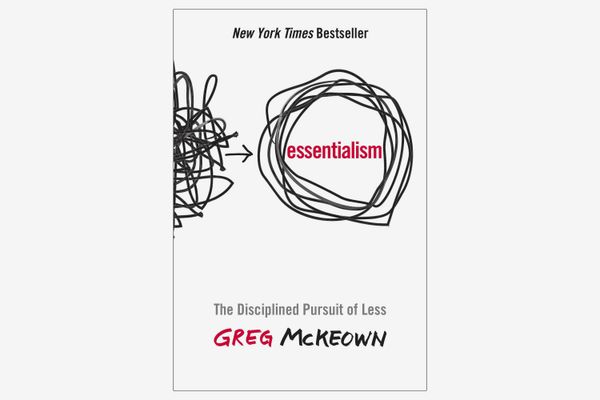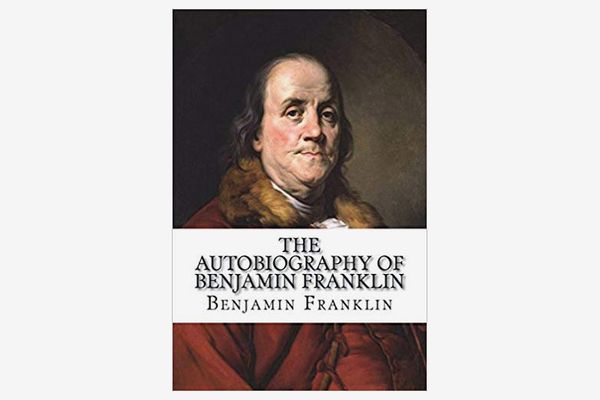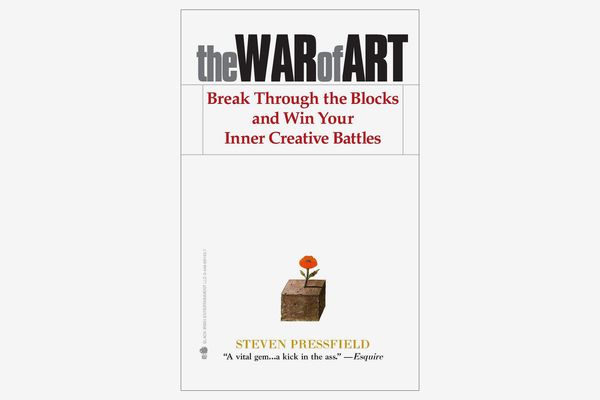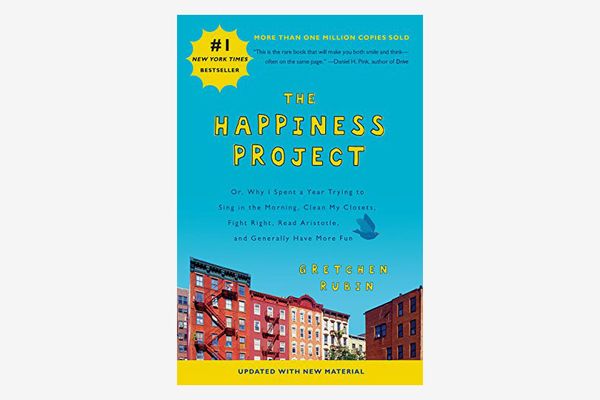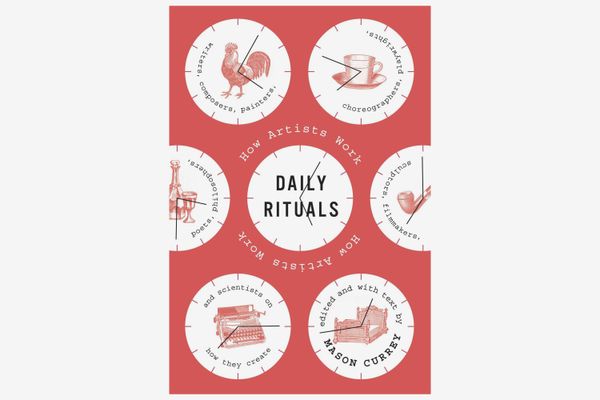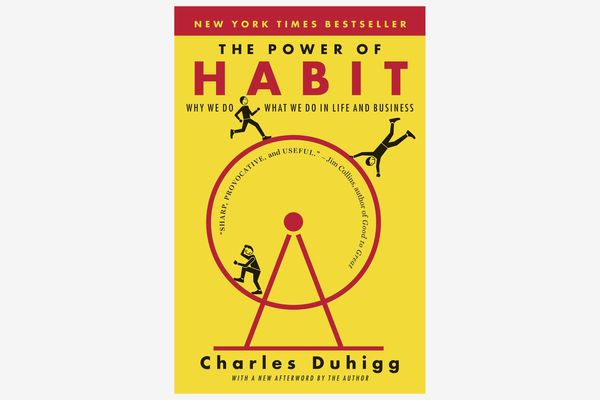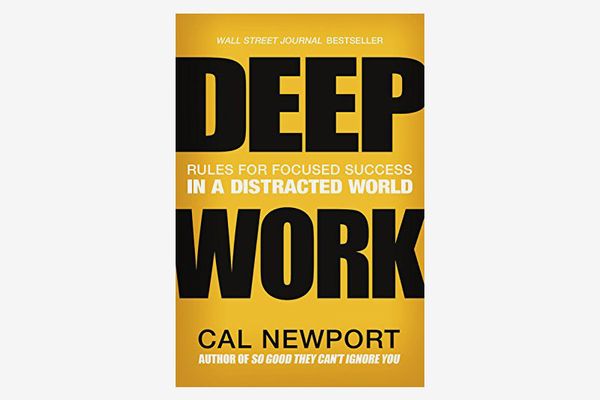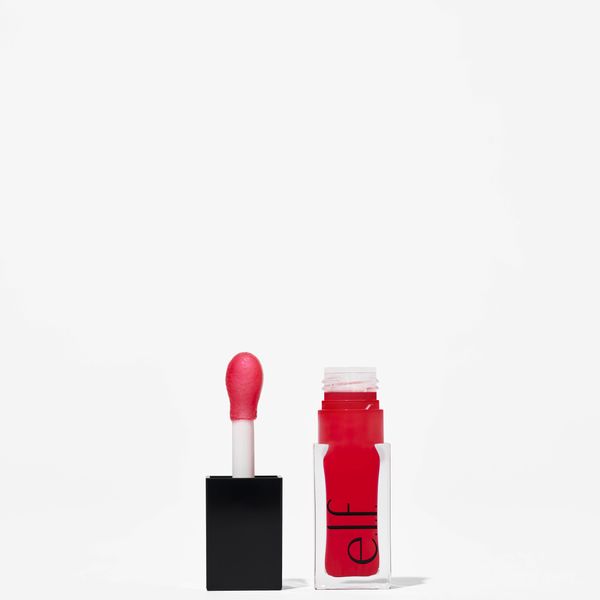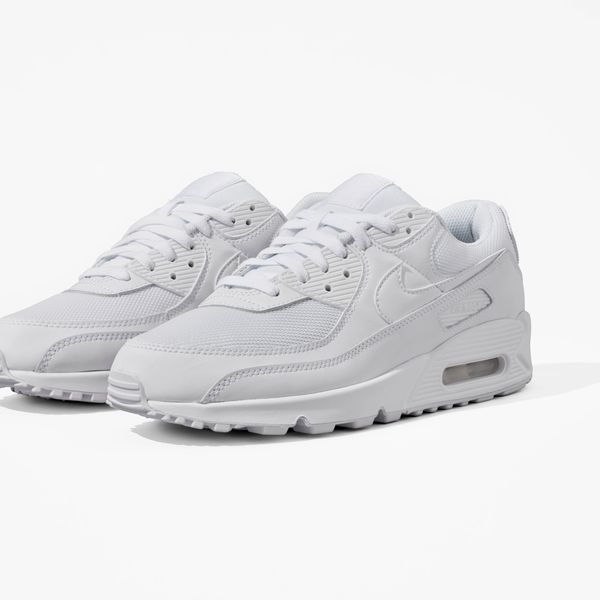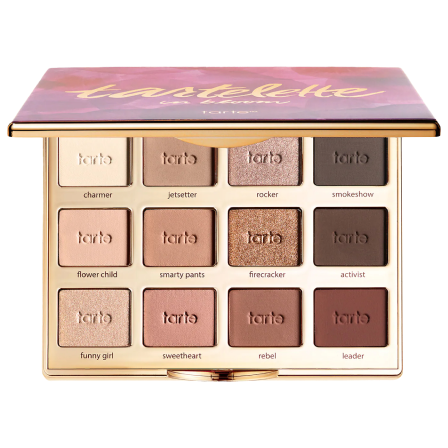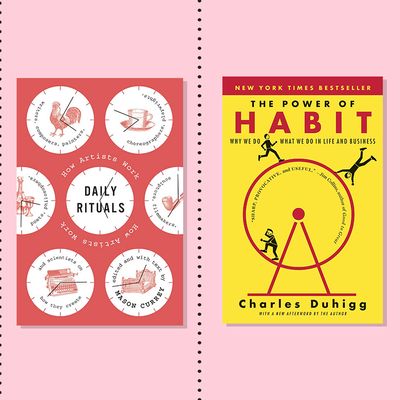
Welcome to Reading Lists, comprehensive book guides from the Strategist designed to make you an expert (or at least a fascinating dinner-party companion) in hyperspecific or newsworthy topics, from microdosing and psychedelic therapy to French cooking. Here, a selection of books to help boost your productivity and improve your time-management skills.
Deciding to “be more productive” is one of those goals that sounds really good — because who doesn’t want to get more done in fewer hours or waste less time on social media? — but is actually hard to do well. That’s because productivity is such a slippery concept, with a different meaning for every person, depending on what they ultimately want to accomplish. And what helps one person stay on track might be the productivity tool that successfully guides another.
So for this reading list on the best productivity books and books on time management, I reached out to a broad range of experts from academia, business, journalism, and tech. That list includes Sophia Amoruso, founder and CEO of Girlboss and author of #GIRLBOSS; Daniel Clark, CEO of Brain.fm; Justin Kerr, author, most recently of How to Be Great at Your Job; Aishwarya Iyer, CEO and founder of Brightland; Jake Knapp, author of Make Time and Sprint; Candace Nelson, co-founder and pastry chef of Sprinkles Cupcakes and Pizzana; Robert Pozen, senior lecturer at MIT Sloan School of Management and author of Extreme Productivity; Gretchen Rubin, author and host of the podcast Happier With Gretchen Rubin; Jane Stoller, life coach and author of Organizing Your Lifestyle; Laura Vanderkam, author of several books about time management and productivity, including Off the Clock and Juliet’s School of Possibilities; and Heidi Zak, co-founder and co-CEO of ThirdLove. These are seven of our panelists’ most-recommended titles on productivity and time management, along with a few Strategist-approved honorable mentions.
If you only read one productivity book
Writer Laura Vanderkam calls this book “a classic, more about being a good person than trying to will the universe into finding you good parking spots,” and it was the most-recommended title by our panelists, with three votes of confidence. MIT professor and author Robert Pozen likes this title because it helps define a framework for your productivity. “It doesn’t really make any sense to say whether you’re productive or not, except relative to some set of meaningful priorities for you,” he explains. “And what Covey does is talk about setting your objectives and having some sense of goals and priorities.” It’s a bigger-picture view, and a must-read if you’re trying to figure out what the point of being efficient is at all.
But that doesn’t mean it’s all abstract recommendations. Heidi Zak, CEO of ThirdLove, read this book while in business school and especially resonated with Covey’s ideas of being proactive. “The idea is simple,” she says. “If you see something that needs to be done, you go do it. It doesn’t matter if it’s an opportunity to do something new, or an old process that needs to change, you don’t talk about it or complain. You take action and get it done.” Covey helps the reader identify these moments a little more easily.
Best book about day-to-day productivity strategies
While Covey’s book focuses more on defining values and building frameworks for productivity, David Allen’s Getting Things Done is all about actionable, pragmatic ways to improve your day-to-day efficiency. If Covey is going to help you define your goals, Allen is going to make sure you do the work to get there, and that’s why Pozen recommended the two titles as a set. Daniel Clark, CEO of Brain.fm, likes the way Allen’s book “outlines three simple steps to a productivity system adaptable to anyone.” Those steps include using “a ‘collection bucket’ to store things outside your mind and stay focused and creating a ‘next actions’ list for all your projects to avoid thinking in the moment,” says Clark, who adds that his favorite quote from the book is, “Your mind is for having ideas, not holding them.” However, the advice can get a little nitty-gritty. “He has a whole chapter, for instance, on how you organize your desk,” says Pozen.
Most hard-core productivity book
Tim Ferriss’s 4-Hour Workweek has been a go-to title in this space since it was published in 2007, but it was divisive among our panel of experts. Pozen did not recommend it because he thinks it created a dangerous myth: “It seems to imply that there are magic bullets to improve your productivity, rather than practical suggestions on various topics.” But three of our other panelists recommended it, making it the second-most popular title overall — though there were some reservations. “It’s a bit of a cheat to get advice for how to be efficient at work from someone who has never worked inside an office,” admits writer Justin Kerr, “but Tim has original ideas and useful insights that apply to everyone, everywhere.”
Ultimately though, says author Jake Knapp, “you don’t have to go all-in on Tim Ferriss’s brass-knuckles approach to work and life to benefit from his extreme questioning of our culture’s norms.” You instead should feel free to pick and choose which of his strategies work for you. Jane Stoller, for instance, has made at least one piece of Ferriss’s advice a part of her day-to-day practice: “I have taken a page from Tim Ferriss and journal every morning, [since] he suggests this is a ‘must do’ for anyone who wants to be successful.”
Best productivity book for defining what’s important
One of the tricks of being more productive is learning to prioritize tasks so that you focus more time on the things that are actually important to you, or, if you will, the essential. “Oh, the beauty of the essential!” swoons Sophia Amoruso about this title on getting the right things done, rather than more things done, by Greg McKeown. She adds, “Choosing what’s essential and what’s not is one of the hardest things I’ve learned. It means finding ways to politely decline and disappoint others while protecting ourselves.” Candace Nelson of Sprinkles agrees: “This book has helped me to stay focused on what is important and learn how to say no to the peripheral distractions, particularly when faced with a large project.” It’s about quality over quantity, a good title if you’re struggling to figure out what’s actually important to you in your life.
Best historical productivity book
Though productivity books might seem like a modern phenomenon, they have a long history that can be traced all the way back to the 18th century, with the publication of Benjamin Franklin’s autobiography. “It’s the story of Franklin’s life, but written with an eye toward the lessons he’s learned and how those might help the reader,” says Vanderkam. And Franklin was definitely a human who knew how to make the most of his time. “Benjamin Franklin managed to be not only one of the Founding Fathers, but also to start a public library, discover electricity, negotiate with France, invent bifocals, and write an American classic. He’s a productivity model for all of us,” says writer and podcast host Gretchen Rubin, who notes that even though this book was written centuries ago, it’s still “fascinating, stimulating, and also quite funny.”
Best productivity book to spark creativity
“This is an incredible book for self-discipline and creativity,” says Aishwarya Iyer, founder of the olive-oil company Brightland. “It’s easy to get caught up with fears, apprehensions, and doubts when creating something new — whether it’s art, writing, building a new business, or making music. This book brilliantly guides you out of a doubting headspace and toward building, making, or creating.” Vanderkam describes this title’s appeal even more simply, calling it, “A kick-in-the-pants short book that always makes me want to shut up, sit down, and write afterward.”
Best personal narrative about living better
“I think productivity is, in the larger sense, all about turning big concepts like, ‘What does the good life look like?’ into something doable. A project, if you will,” says Vanderkam. And that’s exactly what Gretchen Rubin examines in this book. “So much of what we do to be productive, we do because we think being productive will make us happy. But what if we made happiness itself the goal?” asks Knapp, calling Rubin’s positive mind-set in this book “infectious.” It might not be the most practical book of advice, but it might inspire you to go on your own quest in search of a happier life.
Strat honorable mentions
If you’ve ever gotten sucked into reading the Cut’s “How I Get It Done” series, in which successful women outline their daily routines in exacting detail, Mason Currey’s Daily Rituals scratches a similar itch. Rubin recommends this title because it shows all of the different ways to be productive: “Reading Currey’s accounts of the work habits of 161 highly successful, creative people shows that there’s no magic, one-size-fits-all solution — only the way that’s right for us. We could live a life of quiet predictability, like Charles Darwin, or we could indulge in boozy revelry, like Toulouse-Lautrec.” What’s most important, however, is sticking to the habits that actually help you achieve your goals.
That’s why Knapp’s recommendation of The Power of Habit is also worth a mention. “Habits work in three-step loops: cue, routine, reward,” he says. “The trick to changing a habit is to switch the routine, and leave everything else intact.” And building this deeper understanding of how to create new habits, break bad ones, and maintain those that work will help you stay productive on a day-to-day basis.
If you’re looking for a title to help you cut down on the amount of time you spend on social media or email, Cal Newport’s Deep Work makes a compelling case for eliminating shallow work, or “noncognitively demanding, logistical-style tasks” (like scrolling through Twitter or responding to emails as they arrive), in order to create time and mental energy for deep work, the stuff you produce at a high level that requires concentration and focus. It’s a good reminder that one of the best things you can do to improve your productivity is to put down your phone, turn off your notifications, and simply focus on the work that needs to get done.
The Strategist is designed to surface the most useful, expert recommendations for things to buy across the vast e-commerce landscape. Some of our latest conquests include the best acne treatments, rolling luggage, pillows for side sleepers, natural anxiety remedies, and bath towels. We update links when possible, but note that deals can expire and all prices are subject to change.
Every editorial product is independently selected. If you buy something through our links, New York may earn an affiliate commission.

